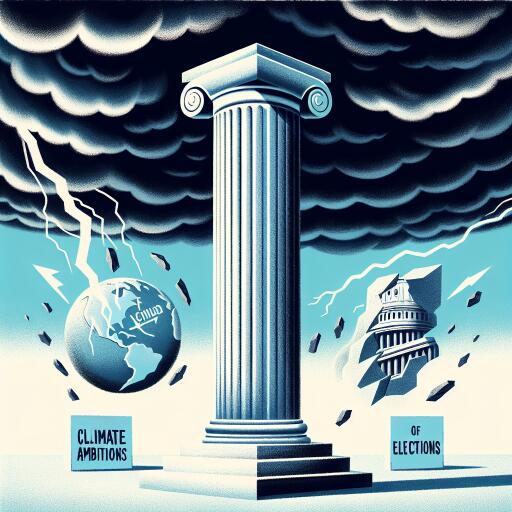
WB’s Climate Ambitions Remain Steadfast Despite U.S. Election: Insights from Ajay Banga
As the United States prepares for its upcoming presidential election, speculation about potential shifts in climate policy is inevitable. However, Ajay Banga, the head of the World Bank, asserts that the institution’s climate strategies will remain unchanged, irrespective of the election’s outcome. This unwavering commitment reflects the World Bank’s pivotal role in addressing global climate challenges through intelligent development solutions.
In an exclusive conversation prior to the IMF and World Bank Annual Meetings slated for next week in Washington, Banga shared in-depth perspectives on the Bank’s continued dedication to climate financing. The development lender has steadily increased its climate-related funding from 35% to an ambitious target of 45% of its total lending for the fiscal year ending in June 2025. This uptick in funding is strategically divided between initiatives focused on adaptation to climate impacts and efforts to mitigate climate change.
Banga revealed that they nearly reached the 45% financing threshold last year and are on course to surpass it this year, spotlighting the institution’s expanding footprint in environmental stewardship. “But what’s inside the 45 is very important,” noted Banga, emphasizing that the focus goes beyond mere figures to prioritize impactful and sustainable projects.
The concept of “development done smart,” as championed by Banga, involves implementing adaptation policies, like establishing climate-resilient infrastructure. These measures ensure that developmental projects endure the increasing threats posed by climate change, affirming a dedication to long-term change.
Amidst a U.S. political landscape poised for potential shifts, with former President Donald Trump challenging current Vice President Kamala Harris, Banga remains optimistic about the resilience of the Bank’s climate objectives. Trump’s previous action of distancing the U.S. from international climate agreements raised concerns, but Banga’s confidence remains unshaken. He believes that basic, practical adaptation measures—such as energy-efficient building designs—are inherently bipartisan and are unlikely to come under threat.
These measures, he suggests, are rooted in practicality and are designed to transcend political affiliations. Banga advocates for sensible strategies that prioritize stability and functionality in both everyday settings and during extreme weather events.
On the topic of renewable energy, Banga continues to highlight the broader implications of sustainable development. He stresses that expanding access to energy in developing regions like Africa has benefits extending well beyond those borders. These efforts could generate significant economic opportunities, providing a boon to advanced economies by enhancing markets for technology and services.
Banga poses an illustrative question: “If Africa gets 300 million people connected to electricity… whose products will they buy?” This underscores the potential for mutually beneficial outcomes when investing in global energy solutions, creating widespread demand for innovations from developed nations.
“We’re kind of in this together,” Banga remarked, signaling a belief in shared responsibility. He indicates that the ramifications of climate development are global, necessitating a cooperative approach that transcends individual nations and administrations.
Ultimately, under Banga’s guidance, the World Bank is poised to forge ahead with its climate agenda, as it approaches its 45% funding target. His leadership reflects a strategic pivot towards a climate-aware future, ensuring that committed efforts withstand evolving political environments. Through collective action and insightful leadership, the World Bank aspires to serve as a beacon of progress in the global fight against climate change.





Leave a Reply